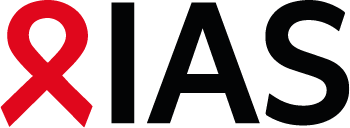Share Abstract
The impact of raltegravir on TCR rearrangement processes may lead to reduced thymic output. A sub-study of the ANRS 138 easier trial
Abstract Content:
Background: Integrase
inhibitor is a new class of therapeutic compound for HIV-1 patients, described
as efficient and safe. However functional similarities between HIV-1 integrase
and the RAG1/2 enzymes, involved in T-cell receptor rearrangements, suggest
possible interactions of integrase inhibitors with thymic function. This study
was designed to evaluate the impact of raltegravir-based therapy on thymic
function and T-cell homeostasis.
Methods: T-cell homeostasis was assessed at weeks 0 and 24 among virologically suppressed patients enrolled in the ANRS 138 trial, who were randomized to maintain their enfuvirtide-based regimen (M) or to switch to a raltegravir-based therapy (S). In a sub-study (19 and 20 patients of each group), the evolution of T-cell subset numbers and activation was measured by direct 6-colour flow cytometry while thymic function was blindly analyzed through quantification of T Cell Receptor Excision Circles (sjTRECs and DJβTREC) and calculation of the sj/βTREC ratio. In a second experiment, the evolution of sjTREC frequencies was measured for 162 patients.
Results: In both M and S patients, all CD4+ and CD8+ T-cell subsets (naïve, RTE, central and effector memory) and their activation status remained stable over 24 weeks. In contrast, the sjTREC frequency significantly decreased under raltegravir (median W0-W24 variation: -4.4 and -13.8 sjTREC/105cells in M and S respectively; p< 0.05). Finally, the sj/βTREC ratio remained unchanged in both M and S groups.
Conclusions: In the absence of increased T-cell activation, the observed decrease in sjTREC frequency under raltegravir might be related to raltegravir-induced decrease of thymic function through inhibition of T-cell receptor rearrangements. These data require confirmation on other patient populations.
Methods: T-cell homeostasis was assessed at weeks 0 and 24 among virologically suppressed patients enrolled in the ANRS 138 trial, who were randomized to maintain their enfuvirtide-based regimen (M) or to switch to a raltegravir-based therapy (S). In a sub-study (19 and 20 patients of each group), the evolution of T-cell subset numbers and activation was measured by direct 6-colour flow cytometry while thymic function was blindly analyzed through quantification of T Cell Receptor Excision Circles (sjTRECs and DJβTREC) and calculation of the sj/βTREC ratio. In a second experiment, the evolution of sjTREC frequencies was measured for 162 patients.
Results: In both M and S patients, all CD4+ and CD8+ T-cell subsets (naïve, RTE, central and effector memory) and their activation status remained stable over 24 weeks. In contrast, the sjTREC frequency significantly decreased under raltegravir (median W0-W24 variation: -4.4 and -13.8 sjTREC/105cells in M and S respectively; p< 0.05). Finally, the sj/βTREC ratio remained unchanged in both M and S groups.
Conclusions: In the absence of increased T-cell activation, the observed decrease in sjTREC frequency under raltegravir might be related to raltegravir-induced decrease of thymic function through inhibition of T-cell receptor rearrangements. These data require confirmation on other patient populations.
